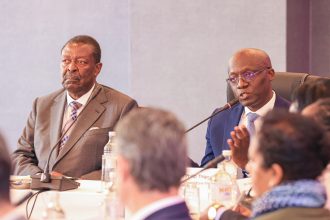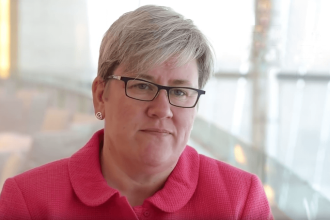By Henry Neondo
The 29th Conference of the Parties (COP29) to the United Nations Framework Convention on Climate Change (UNFCCC) was a critical juncture in advancing climate finance commitments.
According to the Economic Commission for Africa (ECA), the signs of climate change on the continent are glaring. Rising sea levels threaten the coasts of West Africa, prolonged droughts ravage East Africa, and unpredictable weather patterns upend agricultural cycles in regions where food security is already precarious. These changes come with a heavy price tag. In 2023 alone, climate-related disasters pushed an estimated 14 million Africans into poverty.
The ECA notes that African economies already haemorrhaging an average of 5% of GDP – and up to 15% in some cases – annually due to climate disruptions, the stakes have never been higher.
However, the impacts go beyond economics. Claver Gatete, the UN Under Secretary for the ECA notes that climate disruptions are straining Africa’s healthcare systems, increasing food insecurity, and accelerating migration as people move in search of livable conditions.
For the African Civil Society groups, these debates carried significant implications for grassroots-led climate adaptation and mitigation efforts across the continent.
The CSOs have long emphasized the necessity of equitable financing frameworks that prioritize community-driven solutions to climate challenges.
This analysis delves into the key outcomes of COP29’s climate finance discussions, evaluates their alignment with the CSOs’ priorities, and explores opportunities for leveraging these outcomes to enhance resilience at the community level.
A major outcome of COP29 is the commitment by developed nations to double adaptation finance by 2027. While this aligns with the goals of the Glasgow Climate Pact (COP26), the effectiveness of this promise depends on clear implementation pathways. The CSOs must scrutinize whether these funds reach community-based initiatives or remain trapped in bureaucratic systems that fail to address the realities on the ground.
Building on the historic COP27 agreement to establish a Loss and Damage Fund, COP29 saw the operationalization of this mechanism. It aims to provide financial support to vulnerable nations experiencing climate-induced disasters. However, CSOs’ representatives highlighted concerns over access criteria and fund allocation, which risk sidelining community-led recovery efforts. Ensuring the inclusion of grassroots organizations in fund governance remains a pressing challenge.
Private Sector Involvement
The emphasis on private sector contributions to climate finance at COP29 was lauded by some for its potential to mobilize additional resources. However, the CSOs has raised critical questions about the terms of private-sector investments, particularly in carbon markets. Many African communities remain wary of market-based approaches, which can displace indigenous peoples and limit access to traditional lands and resources.
Another debated mechanism was debt-for-climate swaps, where countries reduce their debt in exchange for commitments to invest in climate initiatives. While appealing in theory, CSOs representatives have pointed out that such arrangements often fail to prioritize local communities’ needs and can perpetuate external control over national climate agendas.
For the climate advocates specifically those for community-centred, inclusive, and just climate finance frameworks, the key COP29 outcomes offer both opportunities and challenges in this regard.
First, despite the increased focus on adaptation and loss and damage finance, accessibility remains a significant hurdle. Historically, only a small fraction of climate finance reaches the grassroots level. For the CSOs, the new commitments must prioritize equity, with simplified procedures for accessing funds. For example, localized grant mechanisms that directly engage community-based organizations could ensure that resources flow to where they are needed most.
Second, governance structures for climate finance are often dominated by international and national entities, sidelining local actors. CSOs must advocate for more inclusive governance models that incorporate community representatives in decision-making processes.
The CSO’s emphasis on tangible community impacts aligns with the need for robust monitoring and evaluation frameworks. COP29 discussions around financing mechanisms highlighted the importance of tracking outcomes to ensure that investments translate into resilience-building and poverty reduction at the grassroots level.
The African Civil Society face several challenges in leveraging COP29 outcomes effectively.
To begin with, many African CSOs, and communities talkless of governments lack the technical and institutional capacity to navigate complex climate finance mechanisms. Strengthening local institutions to engage with global finance systems is a critical area for intervention.
Despite progress, grassroots voices remain underrepresented in climate finance debates. The CSOs will continue its advocacy efforts to ensure that local communities are not just beneficiaries but active stakeholders in shaping climate finance policies.
COP29 outcomes provide an opportunity to align community-driven initiatives with broader regional efforts, such as the African Union’s Agenda 2063 and the Africa Adaptation Acceleration Program (AAAP). Building synergies between these frameworks and CSOs’ priorities could enhance the visibility and scalability of community-led solutions.
While international commitments remain crucial, the CSOs can explore innovative funding mechanisms, such as crowd-funded resilience projects and partnerships with philanthropic organizations. These sources can complement traditional climate finance streams and provide greater autonomy to local communities.
COP29 has reaffirmed the global commitment to addressing the climate finance gap, but the extent to which these commitments benefit Africa’s most vulnerable communities remains uncertain. For the CSOs, the challenge lies in translating high-level pledges into actionable outcomes that empower grassroots actors.
To achieve this, the African CSOs should advocate for the decentralization of climate finance governance to include community representatives, build partnerships with like-minded organizations to amplify its influence in global and regional climate negotiations and invest in capacity-building initiatives that equip communities to access and manage climate funds effectively.
In addition, they should engage in knowledge-sharing platforms to document and disseminate best practices in community-driven climate action to advance inclusive climate future and ensure that African communities are not merely passive recipients of climate finance but active leaders in crafting sustainable solutions.
The writer is an advocacy, campaigns and communication specialist




